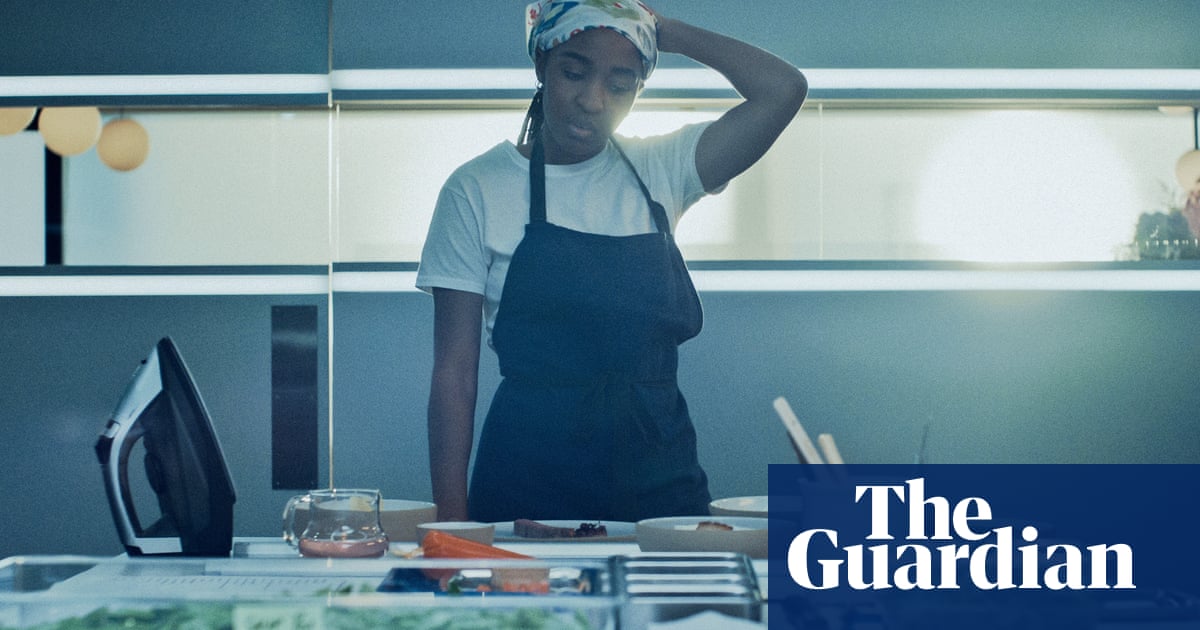In the first series of Slow Horses, MI5’s Jackson Lamb gives a motivational speech: “You’re fucking useless. The lot of you. Working with you has been the lowest point in a disappointing career.” This is actually fairly uplifting from a man who is as likely a contender for a “World’s Best Boss” mug as The Thick of It’s Malcolm Tucker.
On TV, staff morale is at an all time low. From hellish hospitality to callous corporate overlords, going to work has never looked less appealing. Instead of bumbling idiots for bosses, we have tortured geniuses and masochistic maniacs. The daily grind is one of high stakes, long hours and limited rewards – with not an HR department in sight.
In Blue Lights and The Responder, police officers put in thankless shift after thankless shift, while ITV’s Breathtaking offers up more punishing public service, depicting the agonising pandemic experiences of NHS staff. WeCrashed, Super Pumped and The Dropout exposed the insidious insides of tech startups, while Succession dashed the hopes of media moguls everywhere. In Hacks, comedian Deborah Vance abandoned her writer, Ava, in the middle of the desert. In The White Lotus, a hotel manager was driven to defecate in a guest’s suitcase. It makes the offices of Mad Men and Veep look positively professional.
This year, it’s probably going to get worse, with the return of three of TV’s most toxic employers: Industry’s ruthless investment bank Pierpoint, the nerve-shredding restaurant of The Bear and Severance’s brain-splitting Lumon Industries.
Based on the real experiences of writers Konrad Kay and Mickey Down, Industry launched a fresh intake of banking wannabes into a lion’s den of public humiliation, power plays and sharp-suited sociopaths. Beyond the enormous pressure of holding your nerve while moving millions, Pierpoint is a place where inner demons thrive as outer ones descend. There’s substance abuse, psychosexual role play, insider trading and a Christmas party at which one pilled-up finance bro runs repeatedly and bloodily into a window.
At the heart of it all is the most twisted mentor/mentee relationship since the Disgusting Brothers duo of Succession’s Tom and Greg. Baseball-bat-wielding MD Eric and tenacious newbie Harper might not be pelting each other with water bottles (yet), but they’ve stabbed each other in the back so many times that their Savile Row suits are in tatters.
But while the line managers of Industry and Slow Horses might be horrible – Eric, impeccably; and Jackson, grotesquely – it’s the executives who are the real baddies. As Eric discovers, Pierpoint doesn’t give two hoots about years of sacrifice. He should count himself lucky: at MI5, top brass will actively try to kill you to save their own skin.
Over at Chicago’s finest, the stakes are lower but no less vein-popping. Ostensibly, Carmy’s restaurant operation in The Bear is an antidote to the ritual abuse of Michelin-starred kitchens, but the pursuit of perfection is fraught with opportunities to belittle and berate – and it proves hard to shake off his programming. There is no time for niceties amid a proliferation of sharp blades, hot pans and boiling sauces. When sous-chef Sydney accidentally stabs her colleague Richie, the response from Carmy is not to launch an inquiry but instead to shout “probably fuckin’ deserved it”. By season two, they at least know how to say sorry in sign language, but Syd isn’t even being paid, her salary on “pause” while the business gets back on its feet. While the work is repetitive, the hours all-consuming and boundaries disintegrate before they have ever been established, perhaps the biggest red flag of all is when a business is run as one big family rather than … well, a workplace.
In Severance, it’s not their time that employees surrender but their minds. Having undergone a procedure separating their work and home memories, they now operate with a dual consciousness: as “Innies”, who are only aware of the 9-5, and “Outies”, who have no recollection of the office. The concept of work-life balance has curdled and employment is considered so dreadful that literal brain surgery is the only way to cope, the severed staff whirring away in the cryptic Macrodata Refinement department with no idea what they are doing or why they are doing it. While Severance’s employees may not be taking their office horror stories home with them, things are no less horrific for it. With the Innies unable to escape the patronising perks (waffle parties or a “music dance experience”) nor the “Break Room” of psychological torture, the potential for abuse is terrifying. Who needs a legal team wielding NDAs when your employees can’t raise any alarm beyond the flimsy walls of their cubicles?
after newsletter promotion
There may still be hope. We await season two of Severance to discover whether the Innies’ attempted mutiny might succeed, and season three of The Bear to find out if Carmy and the gang are finally going to respect each other as much as they do a perfect spaghetti sauce.
Don’t hold out for the Industry lot, though: their souls were vaporised the moment they walked through Pierpoint’s revolving doors.

